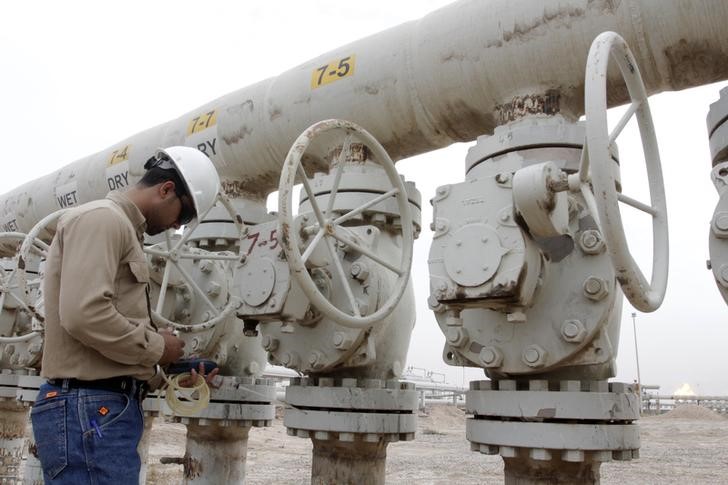By Peter Nurse
Investing.com -- Oil prices dropped Monday on increased concerns of a global slowdown ahead of the latest meeting of top producers to discuss future output levels.
By 9:35 AM ET (1335 GMT), U.S. crude futures traded 5.3% lower at $93.36 a barrel, while the Brent contract fell 4% to $99.75.
U.S. Gasoline RBOB Futures were down 4.2% at $2.9814 a gallon.
Data out over the weekend showed that Chinese factory activity shrank in July amid a fresh round of COVID-related lockdowns, with the country’s official purchasing manager’s index falling to 49.0 in July, indicating a contraction, from 50.2 in the previous month.
The news out of the rest of Asia wasn’t any better, as South Korea's factory activity fell for the first time in almost two years and Japan saw its slowest growth in activity in 10 months.
China is the world’s largest importer of crude, and a prolonged economic downturn there, not to mention the other regional economic powerhouses, is likely to weigh on global oil demand.
Manufacturing is already in contraction in the Eurozone owing to the acute energy crisis and accompanying inflation problem, and those factors also appear to be hitting the consumers as German retail sales slumped to the biggest annual drop since the country started collecting pan-German data in 1994.
The Institute for Supply Management’s manufacturing PMI will be released at 10:00 AM ET and is also expected to show a modest slowdown from June, albeit staying clearly in growth territory.
Turning to the supply side of the equation, the Organization of Petroleum Exporting Countries and allies, a group known as OPEC+, is set to meet on Wednesday to discuss future production levels.
The members have now unwound the record 9.7 million barrels per day supply cut they agreed on in April 2020, when the COVID-19 pandemic hit demand, and this creates a degree of uncertainty over what they will decide to do.
The U.S. has been urging the group to increase production, with President Joe Biden saying that he expected “further steps” from the de facto leader of the group, Saudi Arabia, at the end of his trip to the Middle East two weeks ago to press his case.
However, most OPEC+ members will find it difficult to substantially increase production further because of basic infrastructure issues, and they will also be wary of feeding more barrels into a volatile global market at a time when they desperately need the revenue derived from the high oil prices.
“From our vantage point, however, the OPEC + meeting doesn't seem likely to rock the boat and be a significant oil price catalyst,” said Stephen Innes, managing partner at SPI Asset Management.
“OPEC+ seems more likely to signal a willingness to continue cooperating long-term, but it would be a surprise if the upcoming meeting resulted in a significant policy shift.”
